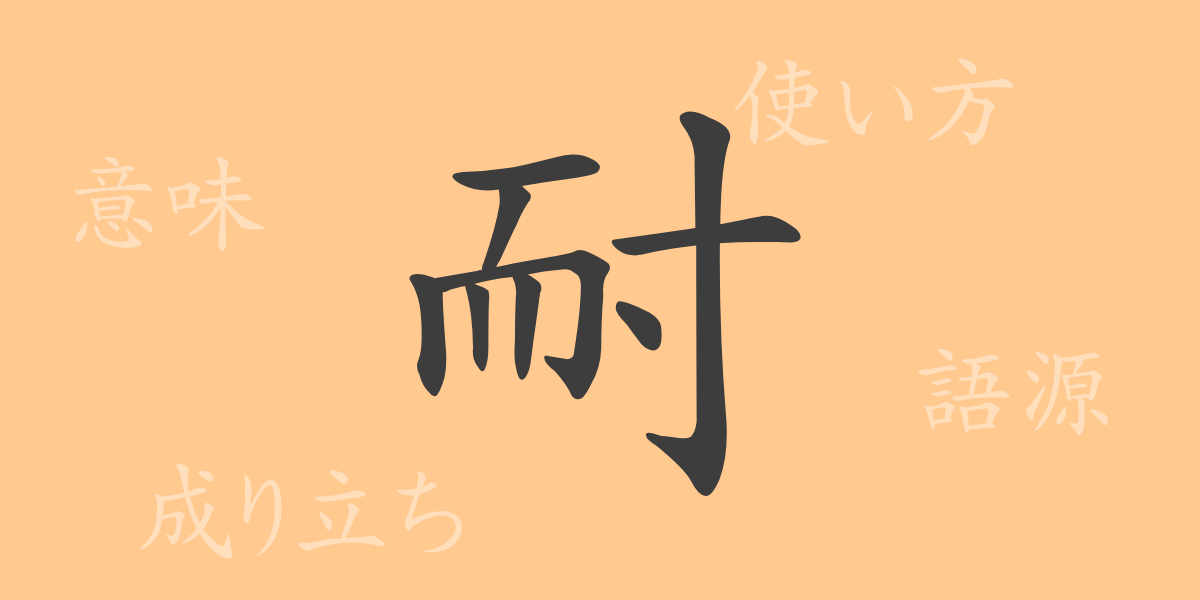Japanese culture is deeply connected with Kanji, each character enriched with its own history and meanings. ‘耐’ (タイ) (tai) is one such Kanji commonly encountered in daily life, yet its origins and meanings are perhaps not widely known. This article delves into the Kanji ‘耐,’ exploring its profound history, modern usage, and its applications in various phrases and idioms.
Origin of ‘耐’ (tai)
The Kanji ‘耐’ originated in ancient China and has a long history traceable back to oracle bone script. Initially derived from the character ‘堆’ (pile up), which symbolized accumulating earth, it gradually incorporated the notion of enduring and withstanding over time, leading to the formation of ‘耐.’ This evolution signifies the transition from representing physical objects to abstract concepts.
Meaning and Usage of ‘耐’ (tai)
The character ‘耐’ means ‘to endure’ or ‘to withstand,’ typically used to denote strength and persistence against difficulties or pressure. It aptly describes both psychological resilience and the durability of materials, making it suitable for frequent use across various contexts in daily life.
Readings, Stroke Count, and Radical of ‘耐’ (tai)
The Kanji ‘耐’ reflects the characteristics of Japanese language through its pronunciation and components:
- Readings: On’yomi ‘タイ’, Kun’yomi ‘たえる’ (taeru).
- Stroke Count: Consists of 9 strokes.
- Radical: The radical is ‘耒’ (らいづくり) (raizukuri), which signifies agricultural tools.
Phrases and Idioms Using ‘耐’ (tai) and Their Meanings
There are numerous idioms and phrases that include ‘耐,’ each with unique meanings and contexts:
- ‘耐久力’ (たいきゅうりょく) (taikyuuryoku) – Endurance over a long period.
- ‘耐震構造’ (たいしんこうぞう) (taishinkouzou) – Earthquake-resistant structures.
- ‘耐火材料’ (たいかざいりょう) (taikazairyou) – Fire-resistant materials.
- Idiomatic usage includes ‘耐えがたい’ (hard to endure) and ‘耐え難い’ (extremely difficult to bear).
Conclusion on ‘耐’ (tai)
Through this article, we have deepened our understanding of the Kanji ‘耐,’ its rich meanings, and its role in Japanese language. Whenever you encounter ‘耐’ in daily life, recall its historical and semantic depth, and appreciate the power of words. Enduring can be challenging, but this character teaches us the importance of strength and perseverance.

























